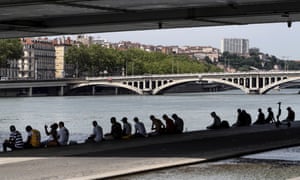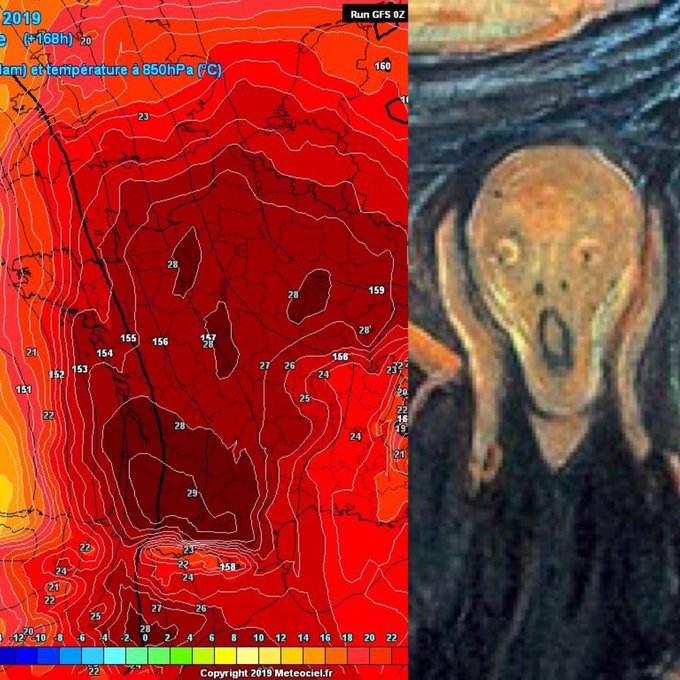Posted
about 6 hours ago
It feels like an eternity, rather than just three
months, since our politicians were in Canberra going through the
physical process of governing us — though eternity is not necessarily a bad thing.
They
return next week — or at least some of them do, with some new
colleagues — into a new Parliament, with a sort-of new government trying
to put an unpleasant past behind it, and a prime minister promising to
concentrate on us, Mr and Mrs Everybody, not political games.
Getting
promised tax cuts through the Parliament is therefore a first-order priority for the Government and a quandary for Labor,
despite it reaching a formal position on the three stages of the tax cuts.
Political
gamesmanship will not really be far away of course, because the
Government wants to embarrass Labor as much as possible about the tax
cuts — and its election loss — and Labor has to tack and weave to
convince people of the merits of its
case for (and against) various aspects of the tax cuts.
The quality of the parliamentary manoeuvres will be
fascinating to watch: the combination of a new Opposition Leader who is a
master of the Parliament at work with a formidable Manager of
Opposition Business, Tony Burke, versus a Prime Minister invested with
the authority of an election, teamed with a new Leader of the House,
Christian Porter, and a government no longer weighed down by the ongoing
tensions of the Abbott-Turnbull struggles.
There are also the changing dynamics in the Senate, where
the crossbench has been pruned to a much more manageable size.
But it is impossible to escape the ramifications of power plays made in the past, particularly when hands have been overplayed.
"Never hate your enemies," Michael Corleone advised in The Godfather. "It affects your judgement."
And
two particular episodes of our recent political history with echoes of
that advice ignored are likely to continue to echo through the new
parliament next week.
A rich portrait of a government in shambles
The first of those episodes concerns
the collapse of Malcolm Turnbull's prime ministership last August, which comes back to the fore amid a range of new books and television programs emerging this week.
The
absolute stand-out of these contributions is Niki Savva's book Plots
and Prayers, which is officially released on Monday, though two extracts
appear in The Australian newspaper.
The first of those extracts detail the extraordinary tussle between two of our brightest lawyers —
Malcolm Turnbull and his attorney-general Christian Porter
— over whether the original contender last year for Mr Turnbull's job,
Peter Dutton, was legally eligible for the job because of constitutional
issues.
Fighting for his political life,
Mr Turnbull threatened to advise the Governor-General, as the outgoing prime minister, that Mr Dutton was ineligible to serve in the job.
As
Savva says: "If Turnbull had followed through, it would have had the
potential to trigger a constitutional crisis rivalling that of 1975.
"Back
then, Sir John Kerr had sacked a Labor government and a Labor prime
minister at the urging of the Liberal leader. Turnbull was seeking to
have his own government sacked."
But
beyond this extraordinary story, the significance of the forensic
detail of Savva's reporting is that it tells us not just about our
political leaders, but about what the key figures who remain in the
Government think of each other. In many cases, the answer is "not much".
Few
of the current crop of politicians come out of the story well, with Mr
Porter and Treasurer Josh Frydenberg being two exceptions.
Like
Labor in Power in the 1990s, Savva's book has a wealth of on-the-record
quotes from the key players in the Government who clearly spoke
thinking it would be a book emerging after their election loss, and
being perhaps too frank as a result.
There are days, weeks, and months of rich pickings for Labor in the book.
But
what it also highlights is a point lost in the acres of coverage of the
leadership coup last year: the shambolic nature of Mr Dutton's quest to
oust Mr Turnbull from one of the people supposed to be one of the
sharpest political operators in the Parliament, and, equally, the chaos
of those still clinging around Mr Abbott.
That is, despite all
that effort taken to drag Mr Turnbull's office, over years, the Abbott
forces, and the right in general, emerge as a politically disorganised
rabble and even a hindrance to the efforts of Mr Dutton to challenge his
prime minister. Scott Morrison is the beneficiary of this.
Much
of this seems driven by the distraction of wanting to tear down Mr
Turnbull, rather than focusing on installing Mr Dutton: a classic case
of hated enemies and clouded judgement.
Scrambling to get the media back on side
The other dynamic that will haunt the Parliament goes to the overreach involved in the
police raids on journalists in Canberra and Sydney.
And
that's overreach as privately conceded by figures across the
Government, about raids conducted well after the leaks that inspired
them, with post-election timing that suggested judgement clouded by
hubris, if not hatred, of any suggestion of lack of control over events
and information.
The brutal and pragmatic truth is, one suspects,
that most people don't give a rats about journalists being raided by
police or even press freedom. The media is, after all, one of the least
trusted institutions in our society.
But what the raids did splendidly achieve was
a unity ticket across media organisations — from News Corporation to Nine and the ABC — which was on display at the National Press Club this week.
Achieving
unity from this group is really quite a feat. News Corp, in particular,
spends a large slab of its journalistic and columnists' efforts
obsessing about the alleged sins of the ABC.
But its greater
significance long-term could be a much more cautious and critical
approach to further intrusions on personal freedoms in the name of
national security than we have seen in the two decades since 9/11.
Recognising this, there is talk within the
Government of a shift in gear to deal with whistleblowers and
journalists, and secrecy generally, in future.
The idea is what
might be called a "graded regime of leaking sins", to better guide the
wallopers of the Australian Federal Police who have been left carrying
the can for the heavy-handed nature of the most recent raids.
That
is, much clearer guidance to the police about just how far and hard
they go in pursuing leaks, and also greater emphasis on the idea that it
is the leakers, rather than the journalists, who are in the law
enforcement agencies' sights.
The clear hope is that such a regime will reduce the pressure from media organisations. But it shouldn't.
Journalists
and news organisations should have as much, if not more, interest in
protecting whistleblowers as they have in protecting their own
interests.
In all the examinations of both the leaks and the
Government's already extensive powers to scrutinise us, this will
hopefully not be forgotten.
Laura Tingle is 7.30's chief political correspondent.


























 Consultez nos conseils et informations sur :
Consultez nos conseils et informations sur : 